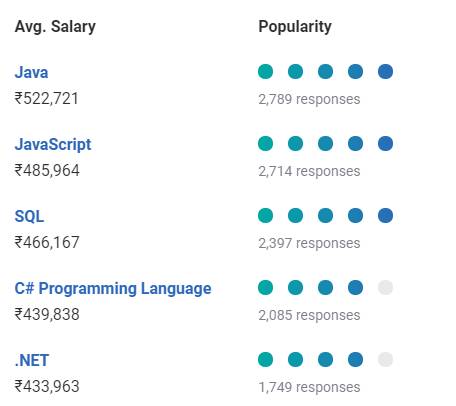
Embedded software engineers must have a good knowledge of hardware and software functions. It is crucial to know the functions of various hardware systems to ensure that software runs smoothly. They must also have experience in hardware design. The embedded software engineer is responsible in creating and testing the software.
Software engineer embedded
Embedded software engineers work on complex projects that incorporate hardware and software, and it is vital for them to be able to balance these demands. These engineers are often expected to work within tight deadlines, and sometimes may need to work overtime. For these reasons, it is vital to craft a good job description.

A job description for embedded software engineers should include the essential requirements. A type of computer program that operates or controls hardware systems, embedded software is a form of computer programming. They are responsible for maintaining and creating the software that makes these devices work. Their work is based on the application of data and algorithms to ensure that the system operates properly. They must communicate well with clients, managers, engineers, and other stakeholders.
The embedded software engineers will manage the development of software or hardware. This position requires client-facing communication skills, as well as specialized training in embedded software engineering. The embedded software engineer is an integral member of a team. He or she is responsible for designing, producing, and supporting embedded systems.
Firmware architect
Firmware architects are responsible for designing, implementing, and testing embedded software in order to produce high-quality, reliable devices. Typically, you'll work in a team environment with other engineers to define project constraints and architecture. You'll need to be an excellent problem-solver with a strong drive to create high-quality products. Also, you'll need to have worked with RF communication protocols or international standards.
Software engineers use principles of computer science and mathematics to create software. They also work with other disciplines to architect, design, and test software solutions. A firmware engineer can perform many tasks, including troubleshooting technical issues, performing evaluations and analyzing design requirements.

Firmware architects must have an in-depth knowledge of multithreaded hardware platforms, microcontrollers, and other related topics. Additionally, they should have a solid understanding of embedded and hardware integration processes. They should also be able to communicate and solve problems well, as well have excellent time management skills. The job also requires working in a team environment and managing projects. An embedded software architect will diagnose and resolve problems in systems as they arise, working with project managers to meet their objectives.
FAQ
Do I need a degree to be a consultant?
It is best to study a subject well and then practice what you have learned.
Learn how to be a great consultant by studying now!
Employers may be reluctant to hire people with a degree, but not the relevant experience. If you can show that your education is comparable to the job applicants, you may still be eligible for employment.
Employers will always be attracted to candidates who are able to apply their real-world skills.
How do you start an LLC consultancy company?
First, determine what you are looking to do as service provider. The next step is to ensure that you're qualified for the services you offer. It might also help to find someone who already does what you want to offer and see how they operate.
Once you know your product/service, you should start looking for the right market. If there aren't enough of them, you may need to create them.
You must then decide whether you want your business to be run by you or hired others.
You could also consider starting your own consulting company by getting a license from the state, but this requires quite a bit of paperwork and legal fees.
Who hires consultants?
Many organizations employ consultants to assist in projects. These consultants can be found in small and large businesses as well as government agencies, universities, educational institutions, non-profits, and education institutions.
While some consultants work for these companies, others are freelancers. The process of hiring depends on the size and complexity the project.
Many rounds of interviews are required when hiring consultants. Then, the final decision will be made about who you believe is best for the job.
What skills are required for consulting?
Consultants should be able to communicate effectively and have excellent analytical skills. This is essential because you will be working on projects that you don't know the details of. You must learn how to manage people and solve problems quickly.
You also need to have excellent communication skills. Most clients expect an answer within 24hrs. They assume that you won't respond if they don't hear from them within 24 hours. It's crucial to keep them informed and make sure they understand everything.
What qualifications does a consultant need?
It is not enough to have an MBA degree. You must also have experience as a consultant. You must have at least two years' experience working in consulting and/or training within a large company.
You should have had experience working with senior management to create strategy. This will require you to be comfortable sharing your ideas with clients and getting their buy-in.
Additionally, you will need to pass a professional qualification such as the Chartered Management Institute Certified Management Consultant (CMC).
How do you get clients for your consultancy business?
First, find a subject you're passionate about. You can choose to be passionate about anything, from public relations and social media. You may need to start small and find a niche market like web design. Once you have found the niche market, you need to understand why it works. What problems does it solve? Why should people use it? And most importantly, how can you help them?
You can also try approaching businesses directly - perhaps they need someone who understands SEO or content creation, or maybe they just want to know where to go for advice on social media strategy.
If all else fails you can offer your services at free events such as conferences or networking nights. You'll get to know many potential clients without spending money advertising.
Statistics
- So, if you help your clients increase their sales by 33%, then use a word like “revolution” instead of “increase.” (consultingsuccess.com)
- 67% of consultants start their consulting businesses after quitting their jobs, while 33% start while they're still at their jobs. (consultingsuccess.com)
- According to statistics from the ONS, the UK has around 300,000 consultants, of which around 63,000 professionals work as management consultants. (consultancy.uk)
- Over 62% of consultants were dissatisfied with their former jobs before starting their consulting business. (consultingsuccess.com)
- Over 50% of consultants get their first consulting client through a referral from their network. (consultingsuccess.com)
External Links
How To
How do I start a consultancy company?
Start a Consulting Company to make some extra money from home. It doesn't require any prior business experience nor capital. It is possible to create a website to launch your consulting business. After you have built a website, social media platforms such Instagram, Pinterest and LinkedIn will be useful to spread the word about your services.
You can use these tools to put together a plan for marketing that includes:
-
Writing content (blogs).
-
Establishing relationships (contacts).
-
Generating leads, also known as lead generation forms
-
Selling products through ecommerce websites
Once you've developed your marketing strategy, you'll need to find clients who will pay for your services. Some prefer to connect with people through networking events. Others prefer to use online resources like Craigslist and Kijiji. The decision is up to each individual.
Once you've found new clients, you'll want to discuss terms and payment options. This could include hourly fees, retainer agreements, flat fee contracts, etc. It's important to know what you expect before accepting a client so you can communicate clearly throughout the process.
An hourly contract is the most popular type of contract for consulting services. In this case, you agree to provide certain services at a fixed rate each month or week. Based on the service you provide, you might be able to negotiate a discount based on the length of your contract. You must fully understand the contract you're signing before you agree to it.
Next, create invoices for your clients and send them. Invoicing can seem simple until you try it. You have many options to invoice your clients. Some people prefer to email their invoices directly, while others prefer to mail them hard copies. No matter what you do, make sure it works!
After you've finished creating invoices, you'll want to collect payments. Most people prefer PayPal because it is easy to use and offers various payment options. Other payment processors such as Square Cash. Google Wallet. Apple Pay. Venmo.
Once you're ready to begin collecting payments, you'll want to set up bank accounts. You can keep separate checking and savings accounts to track income as well as expenses. When paying bills, it is also beneficial to set up automatic transfer into your bank account.
When you start a consultancy business, it may seem overwhelming, but once you learn how to do it correctly, it becomes second nature. This blog post will provide more information about starting your own consultancy business.
You can make extra money by starting a consulting company without worrying about staff. Many consultants work remotely, which means they don't have to deal with office politics or long hours in the office. Being able to work remotely allows you more freedom than traditional employees.